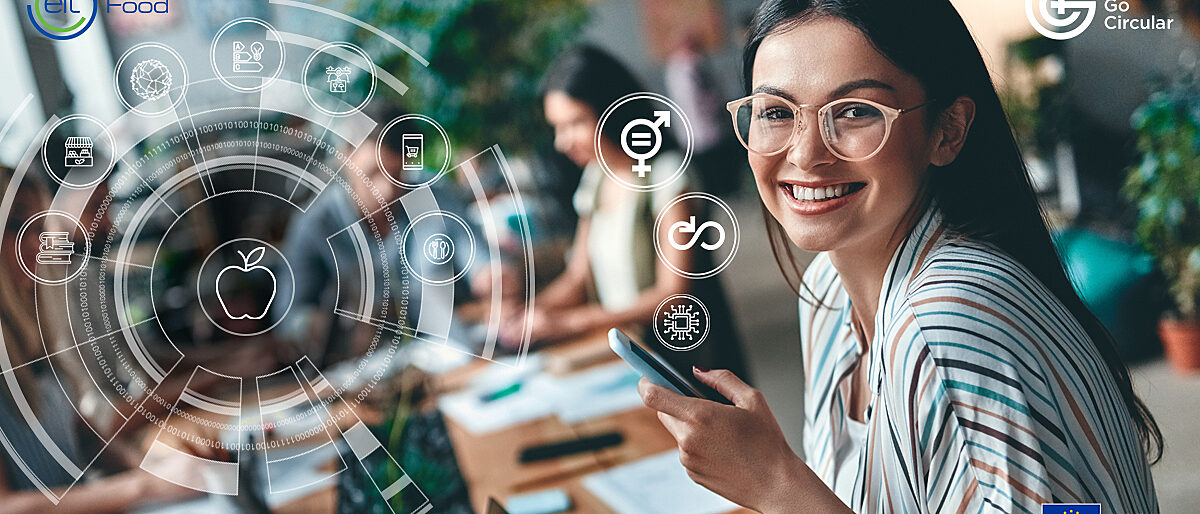
Girls Go Circular
Girls-Go-Circular (GGC) aims to close the digital gender gap by equipping girls of age 14 – 18, with digital and entrepreneurial competences through a blended learning model. GGC invites talents to draw connections, co-create and propose solution supporting local-to-global Circular Food Systems empowering girls as future game-changers by enhancing transversal and digital skills.
Girls Go Circular (GGC)
Women represent only 33% of STEM graduates (science, technology, engineering, and mathematics) and 19% of ICT specialists. An increase in the number of women entering the digital skills market would generate an additional annual EUR 16 billion for the European economy.[1]
In order to close the gender gap, the UN has set ambitious sustainable development goals (SDGs) to bridge the gender gap in education, but also “the empowerment of women and girls at all levels” (SDG4 and SDG5).
GGC will contribute to gender diversity policy objectives and substantially, and to the achievement of Action 8 of the EU Digital Education Action Plan. GGC will bridge the gender diversity gap by equipping girls with digital skills and competences and empowering them to develop solutions to circular food challenges.

GGC learning journey
Through an online learning programme on the circular agri-food system, about 1350 girls will be trained in the GGC programme in 2024. The online learning programme will involve girls from countries and regions of Europe with a modest and moderate innovation capacity (according to the European Innovation Scoreboard), the RIS countries.
The GGC girls will be engaged in both individual research and group activities, contributing to forge their leadership and entrepreneurial skills. While acquiring competences about the circular economy, the girls will be required to use digital tools to progress with their learning.
An online platform will develop some or all of the following skills through a “learning-by-doing” model:
- Evaluating and managing data, information and digital content
- Interacting, sharing and collaborating through digital technologies
- Managing digital identities
- Developing digital content
- Learn and deploy entrepreneurial skills to propose solutions to food circularity
In addition to these skills, the project will create knowledge on different topics around the circular economy, including as one of the main activities in the Green Deal enabling Europe to become carbon-neutral by 2050. Thus, the GGC will raise awareness on the competencies needed to tackle circular economy and climate change challenges and influence the girls’ academic and career choices, favouring STEM disciplines and university curricula oriented towards sustainable development.
The GGC programme is an EIT Community initiative together with EIT Raw Materials, EIT Climate-KIC, EIT Manufacturing, EIT Digital, EIT Health, EIT Urban Mobility, and EIT Food.

